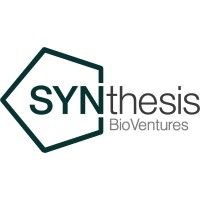
Posted: 19 September 2023
A cancer drug developed in Australia has received the green light from the US Food and Drug Administration (FDA) as a bone marrow cancer treatment.
Momelotinib was invented at Cytopia (ASX: CYT), an Australian biotech founded in 1999 by Professor Andrew Wilks, which was listed in 2004 (ASX: CYT). The Cytopia team was headed by Wilks and Dr Christopher Burns. Wilks is currently a Managing Director at SYNthesis BioVentures, a new life science venture fund. Burns is CEO at Amplia (ASX:ATX).
Prior to founding Cytopia Professor Wilks and his team at the Ludwig Institute for Cancer Research discovered and developed a suite of patents around JAK1 and JAK2 which were licensed by Cytopia. These JAK enzymes are the protein targets of Momelotinib.
Momelotinib was the only asset of Sierra Oncology which was ultimately acquired by GSK in 2022 for US$1.9B in an all-cash deal, making it the highest acquisition amount paid for a drug invented in Australia. While initially approved as a treatment for a type of bone cancer, myelofibrosis, the molecule has the potential to gain additional approvals for treating a number of inflammatory diseases.
According to Professor Wilks, FDA approval for Momelotinib is not only a personal victory but a triumph for the many scientists and clinicians with whom he worked across Australia.
“Australia punches above its weight in terms of life science discoveries. And whilst government support drives the scientific sector, there needs to be a culture change for scientists to understand the commercial opportunities.”
Following the sale of Cytopia in 2009, Professor Wilks established the SYNthesis Group. The group sold assets to big pharma companies like Pfizer and Merck for over $2 billion in total deal values, of which over $180 million was received as upfront fees.
SYNthesis BioVentures is the latest addition to the SYNthesis Group, a life-science venture fund raising $75M to invest in early-stage medical research based on Professor Wilks’ understanding and experience of how to pick a ‘winner’.
“We’ve already had significant success through Anaxis Pharmaceuticals and Aculeus Therapeutics – the first two investments of the fund,” Professor Wilks said.
“There is an increasing need for scientists to look for pathways to translate and commercialise their discoveries, and this can only happen when local investors gain confidence that Australian life science can be as lucrative as more tangible investments. We hope that recent success stories coming out of Australia’s biotech sector, including Momelotinib’s approval and the success of Neuren’s recently approved drug, DayBue, will provide the impetus to continue supporting our industry.”
According to Professor Wilks, having the right expertise is crucial for a successful investment strategy and SYNthesis BioVentures can be your trust-worthy partner.
“Despite Melbourne boasting one of the world’s leading biomedical precincts in Parkville, Australian scientists often face a shortage of experience and capital required to maximise the value of their inventions. We hope that by partnering with SYNthesis BioVentures, we will be able to provide solutions for both issues,” he said.



